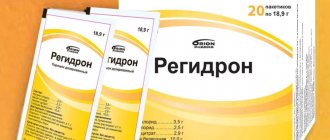Abuse of alcoholic beverages is always fraught with morning sickness, which is popularly called very simply - a hangover. To get rid of this disease, people have come up with a lot of ways, but most of them act only on individual symptoms, and it is extremely difficult to call them effective. There is a way out of any situation, and aspirin was chosen as one of the most common methods for a hangover. In this case, it is aspirin that helps to easily eliminate the symptoms of headaches and alleviate the general condition. The components of the drug combine with ethanol and prevent the occurrence of poisoning. This has long been accepted by doctors and patients as a way to alleviate severe “morning conditions”. The most common symptoms of a hangover are:
• severe headaches of various types; • nausea; • dizziness; • muscle pain; • weakness; • vomit; • depression.
Are there any peculiarities of taking this drug in case of a hangover? Before you resort to using the medicine, you should learn in detail about how to properly take aspirin for a hangover. It is recommended to take aspirin immediately when you come home after drinking a lot of alcohol. This way, you can avoid showing any signs of a hangover in the morning. A hangover and aspirin are quite compatible things, and this is due to a number of positive properties of this medication, such as:
• blood thinning, which facilitates the rapid delivery of glucose and oxygen to cells and tissues; • dissolution of micro-thrombi that can disrupt normal blood flow in capillaries; • lowering blood pressure; • analgesic and anti-inflammatory effect.
The cause of the headache is hidden not so much in the concentration of toxic substances in the body that came with alcoholic drinks, but rather in the micro-thrombi that have arisen, preventing the rapid saturation of cells with oxygen. It is not for nothing that drunkenness and constant binge drinking often lead to heart attacks and strokes, blood clots and paralysis.
For a hangover, it is best to take effervescent aspirin, for example, Upsarin Upsa or simply Upsarin. They are absorbed into the blood faster, thereby unpleasant symptoms will go away within half an hour. In addition, they contain citric acid, which promotes the rapid removal from the body of alcohol breakdown products that have not decomposed during the oxidation process. By taking effervescent aspirin for a hangover, small portions of povidone and baking soda, milligrams of sodium citrate and aspartame enter the stomach, eliminating muscle pain and general weakness.
Why can’t you combine alcohol intake with acetylsalicylic acid?
The effect of acetylsalicylic acid (aspirin) on erythrocyte microscopic clots that form in the blood under the influence of alcohol leads to the disintegration of these dangerous lumps.
They not only cause headaches and swelling, but also pose a risk of blocking blood vessels, which can lead to a stroke or heart attack. Aspirin, whether Cardio, used to prevent thrombosis, or soluble effervescent tablets, thins the blood and micro-clots of red blood cells well, preventing the blood from thickening.
In addition, aspirin "Cardio" and its other types have a pronounced analgesic effect, suppressing the synthesis of such a type of pain mediators as prostaglandins. Due to this property, aspirin is the main component of many anti-hangover drugs. It is taken against headaches after drinking.
Studies of people's reviews on the Internet show that most hangovers resort to the help of instant "Oops" fizzy drinks. They say it helps fight a hangover after drinking.
Obviously, this is due to the fact that the presence of citric acid in the composition of effervescent aspirin makes it possible to activate the processing of toxic breakdown products of alcohol that are not completely oxidized in the body.
And relief comes quite quickly.
It should be remembered that the presence of alcohol in the blood and acids in the drug at the same time simply creates a nuclear mixture to strike the liver, so there can be no talk of any acceleration of the process with triple doses.
For the same reason, it is not recommended to drink aspirin and alcohol at the same time. Their compatibility can lead to gastritis or stomach ulcers.
Can I take it together?
As a rule, it is not recommended to mix alcohol-containing drinks and medications. Substances can increase the toxic effects of each other and cause exacerbation of existing chronic diseases. This is especially true for acetylsalicylic acid: alcohol provokes the synthesis of hydrochloric acid, which is a common factor in the occurrence of gastritis and gastroduodenitis .
It is extremely dangerous to drink the product with ethanol-containing drinks. In these cases, a person's well-being can deteriorate in a matter of minutes, which can threaten his life.
Mechanism of action during alcohol intoxication
Aspirin begins to act soon after administration and provides good relief from alcohol poisoning. The drug helps eliminate symptoms and helps the body recover faster.
In general, aspirin for alcohol poisoning:
- Helps thin the blood - after thinning, fluidity increases, which makes the blood circulate better throughout the body and quickly supply the cellular structures with glucose and oxygen.
- Relieves inflammatory processes.
- Promotes the dissolution of microclots - a similar effect ensures better functionality of the capillary network of blood vessels
- Improves concentration.
- Relieves pain symptoms - under the influence of acetylsalicylic acid, clots and blood clots disintegrate, which are the cause of headaches. Muscle pain is eliminated by suppressing prostaglandin synthesis.
The drug is based on acetylsalicylic acid. Aspirin should be taken for a hangover in tablet form (on average, 500 mg per unit). Additional components: corn starch, cellulose. In addition, there may be additional inclusions. Aspirin is used to relieve hangovers mainly in tablet form (plain and water-soluble forms).
Useful tips
With a hangover, you need to increase your fluid intake, and also spend a lot of time in the fresh air (preferably among coniferous trees). When exposed to oxygen, essential phytoncides, in combination with pure mineral water and physical effort, alcoholic toxins are eliminated from the body much faster than from taking any pill. This is the safest way out of a hangover.
Important! If withdrawal syndrome (alcohol withdrawal) develops after three or more days of heavy drinking, it is necessary to call an ambulance to cleanse the blood using special medications.
How does the medicine work?
Any alcohol, including beer, and acetylsalicylic acid are antagonistic substances. Their compatibility is practically zero. When they enter the human body together, they cause chemical reactions that affect the functioning of the drug.
If you take them at the same time, the load on the capillaries will increase, since vodka or another alcoholic drink creates microscopic red blood cell aggregates in the blood. At the same time, the medication acts in the opposite direction - it reduces the ability to form blood clots.
In addition, acid and alcohol have a detrimental effect on the gastrointestinal tract.
After a small feast or 10 bottles of alcohol, a headache begins, nausea occurs, and cardio problems occur. A hangover is not so much a disease as the formation of blood clots in the blood vessels of the brain. To get rid of these problems, it is important to take medications correctly.
Aspirin may help relieve a hangover, but not immediately. You can drink water and the tablet only after 10 hours. Before this, Aspirin will be mixed with alcohol, which can lead to various pathologies, including cardio.
It is important to remember: the minimum break between the last glass of alcohol and the first pill is 10 hours. You should not take Aspirin before meals, but only after a small meal. But Aspirin's possibilities are not limitless. Before you start drinking, you should take care of comprehensive preparation to combat a hangover.
To relieve a hangover, it is best to constantly drink alkaline mineral water, berry fruit drinks, or milk. But if it is impossible to tolerate a headache, many people prefer to take a life-saving pill.
Acetylsalicylic acid relieves hangovers due to its properties. Alcohol withdrawal syndrome or alcohol withdrawal is characterized by dehydration, thickening of the blood, it becomes viscous, difficult to pass through the vessels, and the formation of blood clots is possible.
In the morning, blood viscosity increases - by thinning the blood, the drug improves blood circulation, making the person feel better.
Acetylsalicylic acid for a hangover should be taken no earlier than 6 hours after drinking. For prevention, you need to drink aspirin 2 hours before alcohol enters the body. This will ensure that the symptoms of intoxication of the body will not be very pronounced or will not appear at all.
An adult is allowed to take no more than 3 tablets of regular aspirin per day.
Many people are concerned about the question of whether it is possible to take soluble aspirin with a hangover. If there are no allergic reactions to the components of this drug, you can take an effervescent drug; tablets of this medicine dissolve in a large amount of water, which also relieves dehydration and helps fight intoxication.
For these purposes, aspirin upsa is most often used in the form of white effervescent tablets. The product normalizes blood circulation, reduces the likelihood of clot formation, after which chills and trembling in the body disappear.
Reviews for the drug
Aspirin receives positive reviews. Patients note the effectiveness of the drug for hangover syndrome. The use of the medication is recommended by many people.
Evgeniy, 27 years old: I like to drink beer with good fish. On weekends we get together with friends and drink a couple of glasses, and sometimes more. We have fun and don’t even think about tomorrow’s hangover. Aspirin helps. I dilute 2 tablets in a mug with warm water and return to normal.
Sergey, 47 years old: An effervescent tablet helps not only with a hangover. The product eliminates headaches and reduces fever if you have a cold. Aspirin must be kept in your home medicine cabinet in case of a headache or hangover. When I'm hungover, I try to drink no more than 2 days.
Irina, 34 years old: My husband’s work often hosts corporate events. As a result, he suffers from a severe hangover in the morning. One afternoon he had an appointment, but his husband couldn’t get up. She gave me Aspirin with water, drank it, and felt better. I used to take paracetamol. But you can’t take medicine after drinking alcohol, it can kill your liver.
Aspirin Basics
To reduce the symptoms of intoxication of the body, before starting to use various drugs, it is better to drink as much liquid as possible, preferably with a mineral component or berry juice, milk.
However, the majority still prefers to neutralize unpleasant sensations in the body with the help of Aspirin. You can start taking the acetylsalicylic component to relieve a hangover 6 hours after the last drink in a dosage of 2 tablets.
Even a single dose of Aspirin for a hangover should be combined with drinking plenty of water. The next time it is allowed to take it orally only after 6 hours. General relief in the condition is noted after 1 hour or 1.5 from the moment of first use of the medicine.
It is better to help yourself to eliminate the symptoms of alcohol poisoning with effervescent Aspirin tablets. In addition to rapid dissolution, they have a systemic effect rather due to the ease of absorption into the bloodstream. The effervescent form lasts longer and, due to the reduced acid content, causes less injury to the gastric mucosa.
Additional components in effervescent tablet form of Aspirin:
- Citric acid;
- Aspartame;
- Sodium citrate;
- Povidone.
It is worth noting that the state of a real, real hangover occurs mainly in those people who suffer from chronic alcoholism. A similar condition continues to develop when separated from alcohol, which has already managed to occupy some place in the human metabolic process.
When a patient suffers from a hangover, his blood vessels constrict, the blood thickens, and all because alcohol provokes dehydration, and because of this, the tendency to form blood clots increases accordingly.
In such a situation, aspirin will help the patient. By the way, if you don’t have aspirin, you can take the German-made Alka-Seltzer drug (from the Bayer company), which contains this substance.
There is no need to completely exclude the possibility of taking this medicine before or after a feast; it is only important to observe the time frame. In this case, it does not matter at all how much and what a person drank. Whether it’s 50 grams of vodka, homemade liqueur, tincture, wine, or even non-alcoholic beer - it’s absolutely forbidden to mix alcohol-containing drinks with aspirin!
Before and during the feast
Aspirin can be taken 2 hours or more before drinking alcohol. This should not be done on an empty stomach, as this drug has a bad effect on the inner layer of the stomach. You can take the tablet only with clean drinking water. Fruit juices, tea, coffee, carbonated drinks are not suitable here.
It logically follows from this that the compatibility of Aspirin and alcohol when used simultaneously is zero. Moreover, such a mixture is harmful to the body.
As a hangover preventative
There is an opinion that taking Aspirin after drinking alcohol immediately before bed will help avoid a hangover. This is an erroneous statement and is not based on any medical evidence. The effect of such a combination on the body will occur slowly, causing the development of new diseases and complications.
During a hangover
Consequences
Aspirin, like any medication, should not be taken simultaneously with alcohol-containing products. When combining Aspirin with alcohol, consequences can occur even if you wait the required amount of time after drinking alcohol. The following side effects may develop:
- severe headache;
- a sharp loss of strength accompanied by drowsiness;
- pain in the stomach;
- upset stool (diarrhea);
- nausea, vomiting;
- blood during bowel movements, or black stool;
- coughing up blood;
- noise in the ears;
- elevated temperature.
Separately, it is worth mentioning the consequences of combining Aspirin and alcohol, what effect it has on the stomach, liver and plasma. Let's take a closer look at each position.
Consequences for the stomach
The simultaneous use of Aspirin and alcohol-containing products is unacceptable. If you do not wait a certain amount of time and take Aspirin after alcohol, you can damage the gastric mucosa.
When a drug and alcohol are combined, small ulcers begin to appear in the stomach, which later develop into large-scale erosion. If you ignore the warnings regarding the combined use of Aspirin and alcohol-containing products, you may experience severe gastric bleeding, which sometimes even doctors cannot stop.
Stomach problems may include fainting, high blood pressure and anemia.
How does the liver react?
Excessive amounts of alcohol are difficult to eliminate by the liver. If you immediately drink alcohol after Aspirin, the liver will experience increased stress, which leads to disturbances and malfunctions of the filtering organ.
It is recommended to replace aspirin with another drug that helps relieve hangover symptoms if there are any problems with the liver. Neglecting this advice and loading the liver with existing pathology can lead to necrosis of the body’s natural filter.
Consequences for plasma
As mentioned above, Aspirin can thin the blood, thus affecting its clotting. This effect obtained from taking a medication can be both positive and negative. It all depends on the specific situation and the health of the individual person.
The positive effect of the drug is possible if there are vascular pathologies. For example, in the process of consuming alcohol-containing products, with existing pathology with blood vessels, the structure of the blood changes (becomes viscous), and blood clots accumulate in the vessels. This is how blood clots form. Aspirin in such a situation will play a positive role, reducing the influence of alcohol.
If the blood does not clot well, there are large cuts or open wounds on the body. Then taking Aspirin can result in death.
Contraindications
Unfortunately, no universal medicine has yet been invented that would help everyone without exception. Each organism has a number of its own characteristics, weaknesses and strengths, as well as vulnerabilities.
And the hangover remedy aspirin is not so harmless and weak that it does not have contraindications. And this is logical, otherwise it would not be at all effective.
The effect of aspirin on a hangover is already clear, now it’s time for problems.
So, who can benefit from aspirin during a severe hangover? First on the list are children under 15 years of age (unfortunately, today the problem of alcoholism is becoming younger and younger).
By this time, the body has not yet been able to fully form, and it is vulnerable to such painkillers. If you have a hangover, you can take aspirin from the above age, otherwise the pills will help, but at the same time they will destroy all the rudiments of immunity.
Will this aspirin help with a hangover from a headache for people suffering from various stomach and respiratory diseases? Yes. After which it will make things much worse. Among the unwanted diseases:
- asthma;
- ulcer;
- gastroduodenitis;
- gastritis;
- problems with the kidneys or liver (as well as undergoing hemodialysis).
Of course, the category of people for whom this drug is contraindicated includes allergy sufferers. For them, the question of how to take aspirin itself during a hangover is unimportant and, rather, unacceptable. It may help with headaches, but it will bring much more problems.
Not only in combination with alcohol, but in general it is prohibited to take aspirin for the following categories of people:
- Patients with gastric and duodenal ulcers, as well as patients with gastritis;
- People with blood pressure changes;
- Children under 16 years old;
- Patients suffering from changes in blood composition.
Important: and naturally, this category of people is at increased risk when using aspirin in tandem with vodka or any other type of alcohol.
The drug Aspirin has antipyretic, anti-inflammatory and analgesic effects. Also, the drug can have a fairly strong blood-thinning effect, so it is not recommended to take it during menstruation.
Aspirin is good for headaches and inflammation of various organs and tissues, and also helps reduce the rate of blood clots. In some cases, it is prescribed as a prevention of atherosclerosis.
Even such a popular remedy as aspirin for a hangover has many contraindications:
- Gastrointestinal pathologies such as peptic ulcers, gastroduodenitis, gastritis, etc.;
- Kidney or liver problems;
- Allergy to aspirin and other non-steroidal anti-inflammatory drugs;
- Asthma;
- A course of hormonal therapy with glucocorticosteroid drugs;
- Combination with alcohol;
- Hemodialysis.
If the patient has increased acidity or gastric ulcers, then aspirin will further increase the acidity levels, which will negatively affect the gastric mucosa.
Is it possible to drink acetyl salicylic acid for a hangover? Reviews from doctors indicate that taking aspirin during a hangover is extremely undesirable. You can drink it to relieve headaches, but it is better to use safer drugs like enterosorbents, diuretics and drink more fluids.
Even if a person believes that he is completely healthy, which is unlikely, since there are no such things today given the disgusting environment and low-quality products, one should not exceed a single dose of aspirin - 1 tablet 12 hours after alcohol. In what cases is drinking aspirin during a hangover especially dangerous:
- if a person has allergies or asthma;
- with a tendency to bleeding of mucous membranes and skin (hemorrhagic syndrome);
- if there are exacerbations of gastrointestinal diseases, excess acidity of gastric juice;
- with cardiac, renal, liver failure;
- if you have a history of hemophilia;
- Drink with caution if you have obstruction of the lungs, bronchi, or gout.
You should not take aspirin for a hangover without a doctor's prescription while pregnant and breastfeeding. Of course, alcohol is not allowed, but it is necessary to remind about the dangers of pills for pregnant women and children.
special instructions
Any medication has its own contraindications for use, and also has a number of adverse reactions.
This is especially true when using medications together with alcohol. With regard to aspirin, experts have clearly proven that if ethanol or its metabolites are present in the body, taking acetylsalicylic acid is strictly unacceptable. When aspirin interacts with alcohol, their toxic effects will be mutually enhanced. As a result, a bleeding disorder will occur and the blood will become too liquid. This condition is especially dangerous in the presence of a gastric ulcer, because the ulcerative lesions are opened and bleeding begins that cannot be stopped. Only surgery can correct the situation, otherwise the patient may die.
Mixing alcohol with aspirin can not only aggravate an existing ulcer, but also lead to its primary occurrence, since the destruction of the gastric walls occurs. Therefore, when using aspirin for a hangover, you should wait until at least 6 hours have passed since the last drink of alcohol.
Benefit or harm
No special preparation or effort is required to take the drug. Many are accustomed to simply drinking an effective remedy, like everyone else, and hoping for optimal results. However, the characteristics of the body and its reaction to taking any medications do not have common features. In certain cases, the dosage, composition and form of tablets are established solely taking into account all factors of the body’s functioning. Therefore, the obviously false concept of universal benefit cannot be regarded as adequate. The benefits of taking aspirin will be received by those who take it responsibly and according to all the rules and recommendations. They will help avoid complications, unforeseen situations and bleeding only if used correctly and rationally.
And a little about secrets...
Russian scientists from the Department of Biotechnology have created a drug that can help treat alcoholism in just 1 month. The main difference between the drug is ITS 100% NATURAL, which means it is effective and safe for life:
- Eliminates psychological cravings
- Eliminates breakdowns and depression
- Protects liver cells from damage
- Helps you recover from heavy drinking in 24 HOURS
- COMPLETE RIDGE from alcoholism, regardless of stage!
- Very affordable price.. only 990 rubles!
A COURSE RECEPTION IN JUST 30 DAYS PROVIDES A COMPREHENSIVE SOLUTION TO THE PROBLEM WITH ALCOHOL. The unique complex ALCOBARRIER is by far the most effective in the fight against alcohol addiction.
Acceptance rules
Now let's talk about how aspirin helps with a hangover. More precisely, how to increase its effectiveness. In order for the drug to have the greatest and best effect on the body of someone suffering from a hangover, you need to have information about its proper use. Otherwise, more harm than good is possible.
Firstly, swallowing it without drinking it is unacceptable. Many people don’t look for or don’t want to get up in the morning to look for and get a glass of water. Instead, they follow the old-fashioned method of collecting saliva and swallowing the pill. Unfortunately, this option often results in the sufferer developing stomach cancer. Reviews from “experts” confirm this.
Secondly, can you take aspirin with alcohol when you have a hangover? No. Even beer. Absolutely not. Similar recommendations are available for citramon and other drugs. In this case, the list of possible complications is frighteningly long, ranging from indigestion to the same hemorrhage. Aspirin and alcohol are incompatible for hangovers. Possible outcomes include:
- Bleeding in the stomach;
- abnormalities in the blood count;
- stomach ulcer.
Thirdly, there are time intervals during which aspirin itself can be taken after alcohol. If you plan in advance, then this is within two and a half hours before the expected libations. If a person has already drunk, then taking aspirin is permissible no earlier than a quarter of a day after the last drink (just before bed is not an option, nothing good will come from it).
And finally, fourth. It is best to take the treasured effervescent tablets in the morning. How much of this aspirin should you take for a hangover? Here, just one tablet per standard glass or mug of water is enough. One way or another, effervescent aspirin helps with a hangover like nothing. This happens thanks to the concentrated and effective composition:
- acetylsalicylic acid (anti-inflammatory, along with analgesic effect);
- citric acid (a real salvation for dry skin);
- sodium citrate (diuretic effect);
- aspartame (creating a pleasant taste);
- povidone (an adsorbent that accelerates the removal of all alcoholic substances from the body of the drinker).
Of course, you should absolutely not just swallow this pill. Instead, it is diluted in a glass of boiled water and, when it is completely dissolved, the treasured liquid can be drunk. Only then does it relieve all symptoms.
conclusions
Does aspirin help with hangovers—yes, it does. But for this it is necessary to create optimal conditions for the body and reduce the likelihood of side effects. Aspirin is an almost ideal option, but only in cases of uniform use. In large quantities with regular use, it can cause irreparable consequences that will have to be eliminated with medications that contribute to the emergence of new problems with the gastrointestinal tract. Therefore, it is important to be aware and careful when taking any medications, otherwise you can harm your own body.
Hangover symptoms
The place to start is not what helps with hangovers. No. First you need to figure out what it is? Yes, it occurs the morning after drinking, that’s understandable. But what is its cause and what are the symptoms?
So, a hangover is a severe intoxication of the body. Poisoning is caused by alcohol, along with its half-life products. Symptoms include:
- Strong headache;
- nausea, possible vomiting;
- pain in all muscles;
- weakness, depression, depression;
- there is a possibility of increased temperature.
Now about the causes of these symptoms, in accordance with the specified order. Headache - the cause here is high blood pressure due to strong blood flow to the affected head.
The second, third and fourth points on the list arise due to the accelerated “cleansing” of the body. It is important to remember that alcoholic drinks in large quantities are rightly perceived by the kidneys as a toxin, and they begin to urgently remove it. And this already leads to the indicated symptoms. True, activated carbon can help here, which relieves these symptoms.
Damage to the intestinal mucosa, coupled with all of the above reasons, can lead to the activation of all the “forces” of the immune system. Therefore, with a hangover, a rise in temperature is possible, and removing it immediately is not the best solution.











